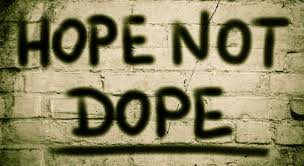Prescription drug addiction is a growing concern affecting individuals across various demographics. This condition arises when prescription medications are used in a manner not intended by the prescribing doctor, leading to misuse and, in many cases, addiction.
What Is Prescription Drug Addiction?
Prescription drug addiction, also known as prescription drug misuse, occurs when individuals consume medications in ways or for purposes other than prescribed. This can include taking higher doses, using someone else’s prescription, or using the medication to achieve a desired effect, such as euphoria. Commonly misused prescription drugs include opioids (like oxycodone and hydrocodone), benzodiazepines (such as alprazolam and diazepam), and stimulants (like amphetamines).
Signs and Symptoms of Prescription Drug Addiction
Recognizing the signs of prescription drug addiction is crucial for early intervention. Symptoms may include:
- Taking higher doses than prescribed
- Using the medication more frequently than directed
- Experiencing cravings or a strong desire to use the drug
- Neglecting responsibilities or social obligations
- Engaging in risky behaviors to obtain the medication
- Experiencing withdrawal symptoms when not using the drug
If you or someone you know exhibits these behaviors, it may indicate a prescription drug addiction.
Causes of Prescription Drug Addiction
Several factors contribute to the development of prescription drug addiction:
- Overprescription: In some cases, healthcare providers may prescribe medications in higher doses or for longer durations than necessary, increasing the risk of misuse.
- Accessibility: Easy access to prescription medications, whether through personal prescriptions or others’ medications, can facilitate misuse.
- Psychological Factors: Individuals dealing with stress, anxiety, depression, or trauma may misuse prescription drugs as a coping mechanism.
- Perception of Safety: Some individuals believe that prescription drugs are safer than illicit drugs, leading to misuse.
Treatment Options for Prescription Drug Addiction
Overcoming prescription drug addiction requires a comprehensive treatment approach tailored to the individual’s needs. Common treatment options include:
- Medical Detoxification: A medically supervised process to safely remove the drug from the body, managing withdrawal symptoms.
- Inpatient Rehabilitation: Provides a structured environment with 24/7 care, including therapy and support.
- Outpatient Programs: Allow individuals to receive treatment while living at home, offering flexibility and support.
- Therapy and Counseling: Cognitive-behavioral therapy (CBT) and other therapeutic modalities help address the underlying psychological aspects of addiction.
- Support Groups: Groups like Narcotics Anonymous (NA) provide peer support and shared experiences.
For those in the Houston and Dallas areas, numerous reputable facilities offer specialized care for prescription drug addiction. Seeking professional help is the first step toward recovery.
Preventing Prescription Drug Addiction
Prevention is key to addressing prescription drug addiction. Strategies include:
- Education: Informing individuals about the risks associated with prescription drug misuse.
- Safe Storage: Keeping medications in a secure place to prevent unauthorized access.
- Proper Disposal: Disposing of unused or expired medications safely to prevent misuse.
- Open Communication: Encouraging discussions about the potential for misuse and the importance of adhering to prescribed guidelines.
Conclusion
Prescription drug addiction is a serious condition that can have profound effects on individuals and their families. However, with the right treatment and support, recovery is possible. If you or someone you know is struggling with prescription drug addiction, consider reaching out to a Houston drug rehab or Dallas drug rehab center for guidance and assistance. Taking the first step toward seeking help can lead to a healthier, drug-free life.




